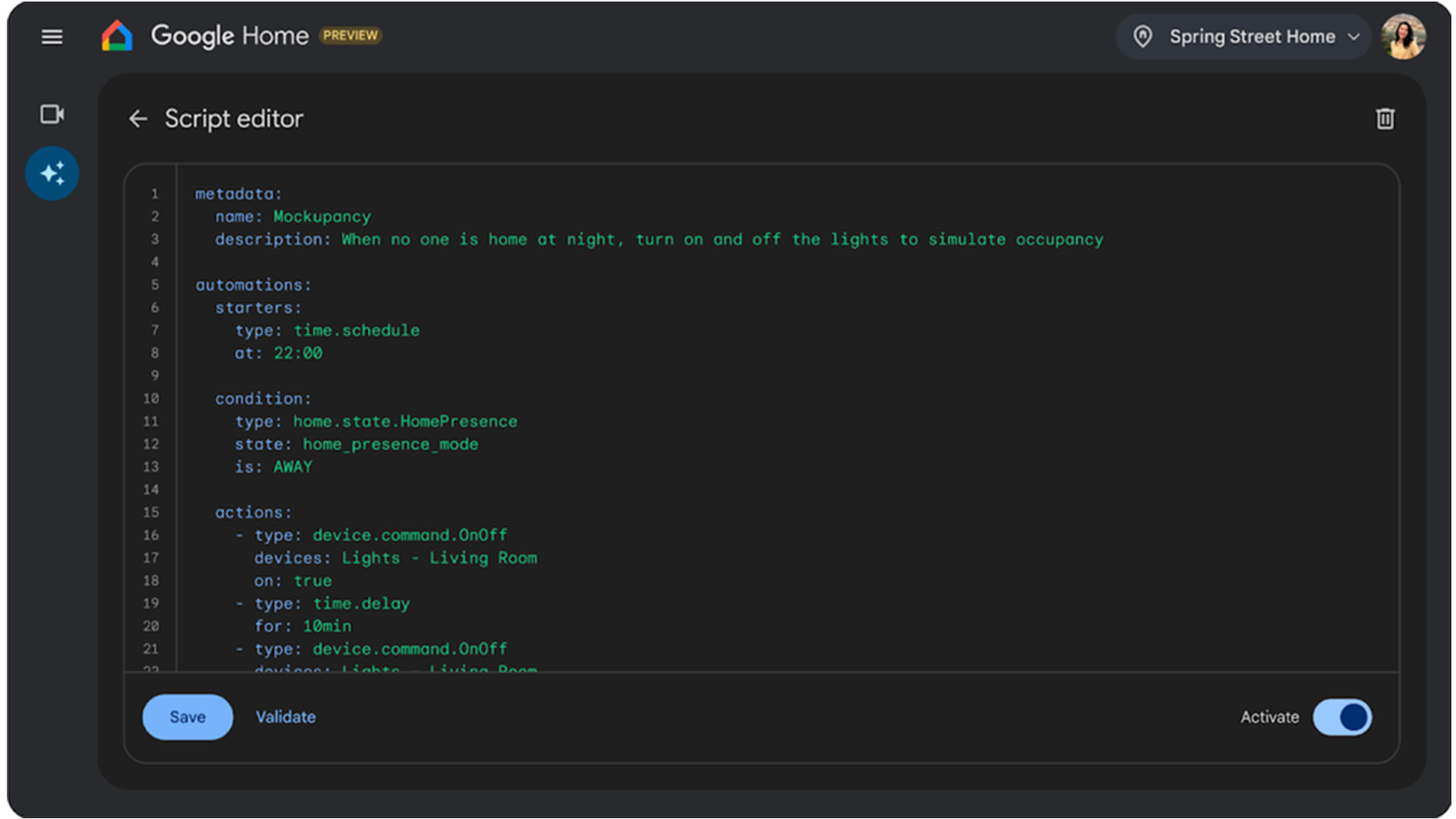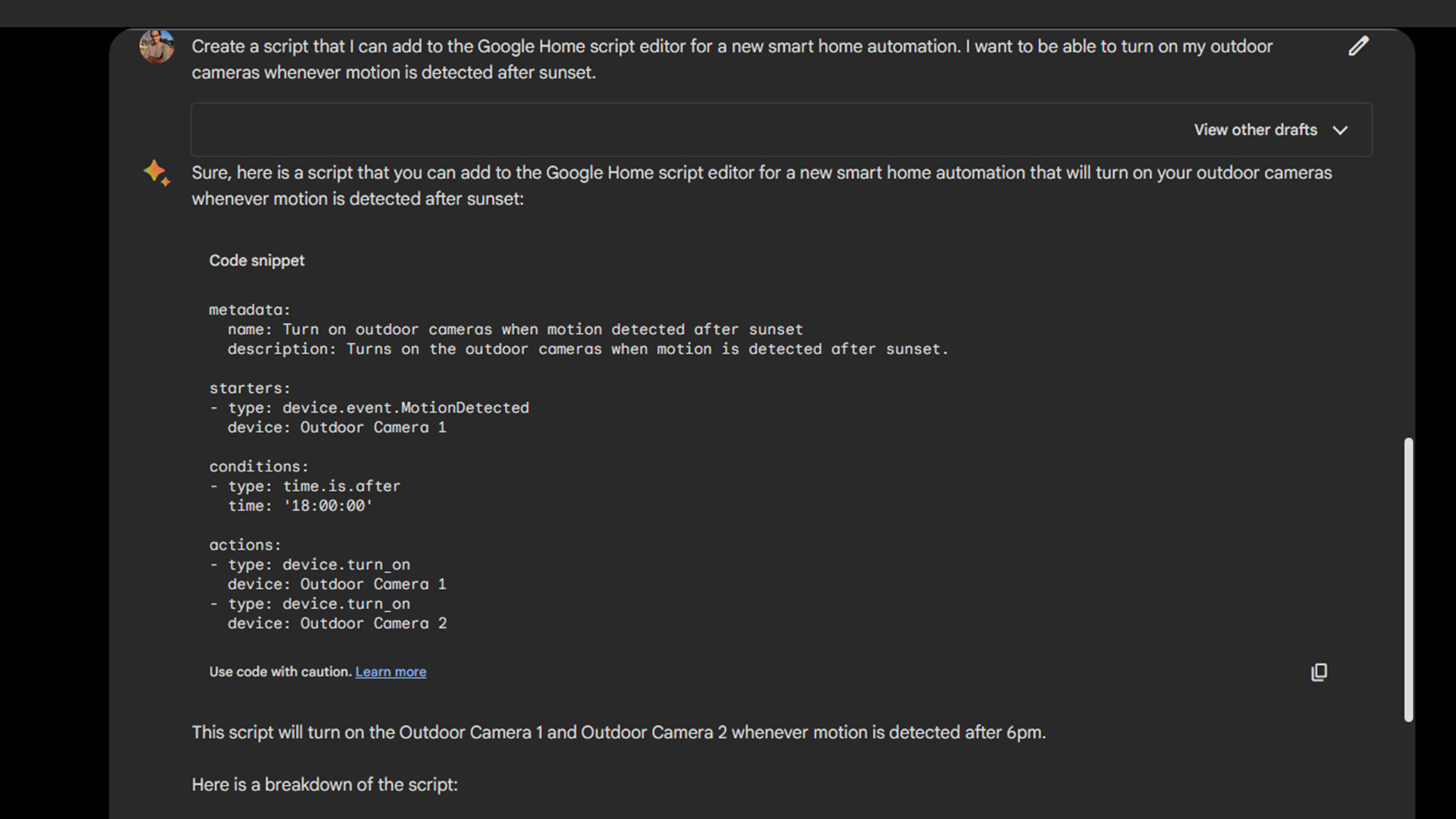Google Home gets powerful smart home automations, but there’s a catch
You need a bit of basic programming experience

Sign up for breaking news, reviews, opinion, top tech deals, and more.
You are now subscribed
Your newsletter sign-up was successful
Expanding on Google Home's recent redesign, Google has begun offering users a way to build custom automations for their smart homes.
This means you’ll be able to create very specific instructions for your smart home devices, according to a recent Google Nest Community post. For example, someone can instruct Google Home to activate their Roomba and have it begin vacuuming the moment everyone has left home or flash the house’s lights whenever a smoke alarm is active. Things can even get complex as users will be able to string multiple gadgets together to work on a single schedule. Most importantly, automations will work across “Google Home and [third-party] smart home devices,... include many Matter-supported sensors.”
So you may be wondering, what’s the catch? Well, you'll need a bit of programming experience because creating automations requires you to use Google's newly available script editor.

How it works
Programming automations doesn't appear to be all that difficult. Google has made things pretty simple. Each automation requires three things: a starter, the trigger that starts the whole event; a condition, which are the prerequisites that must first be met; and an action, where the devices carry out commands.
Let's say someone wants to dim the lights and lower the blinds whenever the TV in the living room is turned on after dark. In this example, the starter would be the TV turning on. To meet the condition, the time must be after sunset. Once both are met, the actions activate: the lights go dim and the blinds close.
A full list of supported commands can be found on the Google Home Developer Center – at least it should be there. At the time of this writing, the page is currently down.
Programming help
Realizing programming can be tricky for some, Google is providing resources to help people get started. First, the tech giant has published a detailed, yet easy-to-understand step-by-step guide on how to create a scripted automation (the lesson takes about an hour). Or you can simply take one of the ready-to-use sample scripts and then paste it into the editor.
Sign up for breaking news, reviews, opinion, top tech deals, and more.
What if you’re still not comfortable with writing your own script but an appropriate one isn't available in the premade samples? Ask Google Bard. The AI has the ability to write something for you. As a test, we asked Bard if it could create a script that would activate my outdoor camera whenever motion is detected outside my house after sunset. Sure enough, the AI wrote an appropriate script complete with a starter, condition, and action.

To access the script editor, you can go to the Google Home website where you'll see some pre-made routines to help you get started, or join the Public Preview program through the Google Home mobile app. Detailed instructions on how to join are available on the Google Nest Help webpage. Be aware the routines are meant for the sake of convenience and not for any safety or security use cases, according to a company notice.
Since the automations are part of an early preview, there are plans to grow them. Later down the line, more commands will be added, "including camera events", plus the ability to send custom notifications in an action.
If you're looking for ways to expand your smart home, check out TechRadar's list of the best smart home devices on the market.
Update 6-16-2023: A Google representative got back to us after publication with some clarifying information. First, Google doesn't recommend using Bard to create automations as the AI model hasn't been properly trained yet to create commands in the YAML language that the script editor uses. Secondly, although the script editor is "labeled as a preview", it has technically officially launched. Its current design, however, is meant more for "advanced users" who can then give Google some feedback on how to improve the software.

Cesar Cadenas has been writing about the tech industry for several years now specializing in consumer electronics, entertainment devices, Windows, and the gaming industry. But he’s also passionate about smartphones, GPUs, and cybersecurity.